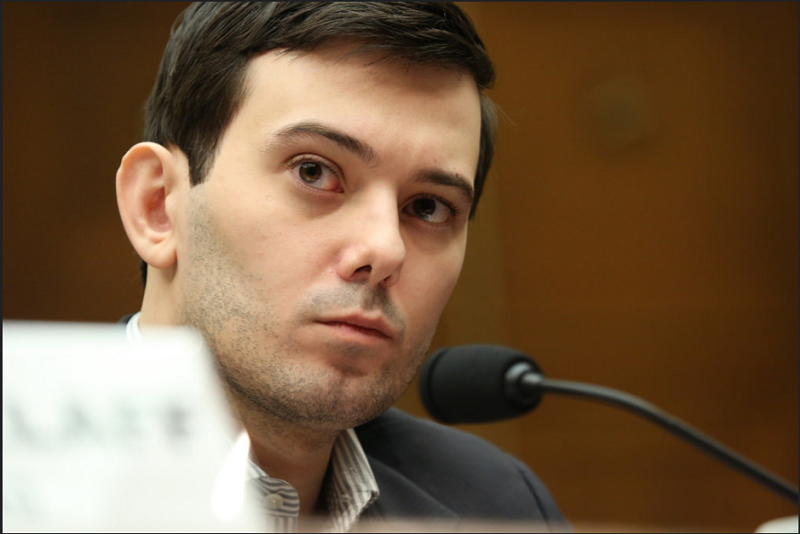BROWSE BY TOPIC
- Bad Brokers
- Compliance Concepts
- Investor Protection
- Investments - Unsuitable
- Investments - Strategies
- Investments - Private
- Features/Scandals
- Companies
- Technology/Internet
- Rules & Regulations
- Crimes
- Investments
- Bad Advisors
- Boiler Rooms
- Hirings/Transitions
- Terminations/Cost Cutting
- Regulators
- Wall Street News
- General News
- Donald Trump & Co.
- Lawsuits/Arbitrations
- Regulatory Sanctions
- Big Banks
- People
TRENDING TAGS
Stories of Interest
- Sarah ten Siethoff is New Associate Director of SEC Investment Management Rulemaking Office
- Catherine Keating Appointed CEO of BNY Mellon Wealth Management
- Credit Suisse to Pay $47Mn to Resolve DOJ Asia Probe
- SEC Chair Clayton Goes 'Hat in Hand' Before Congress on 2019 Budget Request
- SEC's Opening Remarks to the Elder Justice Coordinating Council
- Massachusetts Jury Convicts CA Attorney of Securities Fraud
- Deutsche Bank Says 3 Senior Investment Bankers to Leave Firm
- World’s Biggest Hedge Fund Reportedly ‘Bearish On Financial Assets’
- SEC Fines Constant Contact, Popular Email Marketer, for Overstating Subscriber Numbers
- SocGen Agrees to Pay $1.3 Billion to End Libya, Libor Probes
- Cryptocurrency Exchange Bitfinex Briefly Halts Trading After Cyber Attack
- SEC Names Valerie Szczepanik Senior Advisor for Digital Assets and Innovation
- SEC Modernizes Delivery of Fund Reports, Seeks Public Feedback on Improving Fund Disclosure
- NYSE Says SEC Plan to Limit Exchange Rebates Would Hurt Investors
- Deutsche Bank faces another challenge with Fed stress test
- Former JPMorgan Broker Files racial discrimination suit against company
- $3.3Mn Winning Bid for Lunch with Warren Buffett
- Julie Erhardt is SEC's New Acting Chief Risk Officer
- Chyhe Becker is SEC's New Acting Chief Economist, Acting Director of Economic and Risk Analysis Division
- Getting a Handle on Virtual Currencies - FINRA
ABOUT FINANCIALISH
We seek to provide information, insights and direction that may enable the Financial Community to effectively and efficiently operate in a regulatory risk-free environment by curating content from all over the web.
Stay Informed with the latest fanancialish news.
SUBSCRIBE FOR
NEWSLETTERS & ALERTS
Martin Shkreli – The (Sort of) ‘Robin Hood’ of Hedge Fund Managers
[Photo: Martin Shkreli, Testifying February 2016 Before a House Committee, by OversightandReform / Flickr]
by Howard Haykin
In his “MoneyStuff” column for BloombergView, Matt Levine recounts the experiences of an investor in Martin Shkreli’s hedge fund - Sarah Hassan, 27, who invested $300,000 with Shkreli.
Ms. Hassan said she got an email at 8:13 p.m. on 9/9/12, saying she was up $135,000, a return of 45%. Just 31 minutes later, she received a 2nd email from Shkreli notifying Hassan and other investors that he was shutting the fund down. The email read, in part: "We went through operational mishaps. There is no longer any cash in the funds."
This prompted Mr. Levine to wonder: What kind of operational mishaps can a hedge fund go through between 8:13 p.m. and 8:44 p.m.? U.S. markets are closed; things are usually pretty quiet. The obvious operational mishap is that the hedge fund manager -- "Pharma Bro" Martin Shkreli -- could have stolen the money, and he is indeed on trial for fraud in federal criminal court. But even if that was the explanation, to go from up 45% to down 100% in the course of 31 minutes one evening, and get an email about it, is pretty unusual. Fraudsters don't normally email you promptly when their fraud is complete.
Like Shkreli's other investors, Ms. Hassan complained about the disappearing money, and Shkreli compensated her with shares of Retrophin Inc., the pharmaceutical company he had founded.
Ms. Hassan said she felt “betrayed” when she learned the fund was closing and the money was gone, even though she ultimately made a $2.7 million profit after selling all her Retrophin holdings. It took a year for her to get cash and a portion of the Retrophin shares from Shkreli, though.
So she got back 10 times her investment! When Shkreli was first arrested, Matt Levine wrote about it with the headline "Martin Shkreli Accused of Being Surprisingly Good at Fraud." Not a lot of securities frauds end with everyone better off. The prosecutors' theory in the Shkreli case, in a nutshell, is that Shkreli started a hedge fund, lost all the money, lied about it, started another hedge fund (the one Hassan invested in), lost all the money, lied about it, started a pharmaceutical company (Retrophin), had enormous and sustained success (it is currently worth about $740 million), and took money from Retrophin under false pretenses to pay off the hedge-fund investors he had ripped off.
There are a lot of victims there -- the hedge-fund investors were allegedly deceived, and Retrophin, a public company, was allegedly looted -- but one fact that unites those victims is that Shkreli has made them all much richer than they would have been. It is not precisely an airtight legal defense to fraud charges, but you can kind of see where he's coming from.
[Note: Financialish readers are encouraged to follow Matt Levine on Bloomberg View - his columns are thoughtful, informative and somewhat quirky. Prior to joining Bloomberg, Mr. Levine was an editor of Dealbreaker, an investment banker at Goldman Sachs, an M&A lawyer at Wachtell, Lipton, and a clerk for the U.S. Court of Appeals for the Third Circuit.]





